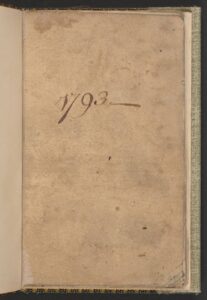Quick Chronicles: Article 4
By Cyndi Farrell
As the town prepares to gather for its Annual Town Meeting on April 5, we ask where this drive for progress and citizen legislature stems. Look no further than Manasseh Cutler, who was at the heart of this early civic vision and a key figure in the town’s early establishment.
As Hamilton embarks on a significant restoration project for its Town Hall, it stands on the verge of a monumental milestone—becoming the first historic Town Hall in Massachusetts to achieve Net-Zero status. This ambitious move underscores the town’s enduring commitment to progressive civic leadership. This tradition dates back to its earliest days.
In 1793, when Hamilton was called the “Hamlet on the Road to Boston,” the town was purchased from Ipswich for 910 pounds in silver dollars, marking the beginning of a community poised to shape a new landscape beyond its agricultural reputation.
Raised in what became known as Hamilton and educated in local schools, Cutler’s ideas transcended his hometown, playing a critical role in national history. Although the original one-room schoolhouse that Cutler attended no longer stands, Hamilton’s Elementary School is proudly named in his honor, rooted in the same principles of civic duty that continue to shape the town today.
Cutler’s legacy extends far beyond Hamilton. After moving to Philadelphia, he was instrumental in drafting the Northwest Ordinance of 1787, which prohibited slavery in the Northwest Territory — a region that would later become Ohio, Indiana, Illinois, Michigan, Wisconsin, and part of Minnesota. Inspired by Cutler’s teachings, this act laid the foundation for a moral spotlight against slavery. His efforts shaped the founding of Hamilton and influenced the nation’s trajectory, demonstrating how local leadership could spark national change through a precedent that new states should be free states.
In Hamilton, the commitment to freedom and equality was evident during the American Revolution (1775-1783). Residents supported Black soldiers who fought for the cause, and the town was a key player in the Underground Railroad, assisting freedom seekers during the 19th century. Throughout this period, Hamilton also supported employing women. It was one of the first Massachusetts towns to hire women as full-time teachers, a step ahead of other communities that only hired men for the main term.
Perhaps one of the most pioneering moments in Hamilton’s history is reflected in the pencil markings of the very first Town Meeting minutes, where women exercised their right to vote—127 years before the ratification of the 19th Amendment. This early act of social equality laid the groundwork for a community that continues to champion civic equality today.
As Hamilton moves forward with its Town Hall restoration, it does so with a rich legacy grounded in the values of equality, community, and sustainability. This restoration is more than just a physical project; it is a testament to the enduring spirit of a community that has always been ahead of its time.
As a community thoughtfully weighs significant decisions about its future, including votes on a consolidated school, educational funding, the HERO Act, and budget priorities, Hamilton remains committed to the principle that its decisions are shaped by the people they will affect. Town Meeting is where our present intersects with centuries of civic leadership. Even today, in a small town, our leaders’ choices affect our daily lives. Unlike cities, where the citizen legislature can feel lost in the masses, a single vote here can decide the future of a project and even who represents us.
On Saturday, April 5, at 9 a.m. Hamilton residents gather for the Annual Town Meeting. Just as those very first meeting minutes of 1793 were recorded, will these meeting minutes inspire the next century of citizen legislature? We believe it will.
This article is part of Quick Chronicles, a series of brief blog-format stories celebrating the people, events, and history of the town. Inspired by the legacy of the Hamilton-Wenham Chronicle, the former print community newspaper, these mini features will shine a spotlight on the vibrant Hamilton community and the remarkable individuals who live and work here.“ Quick Chronicles” aims to keep the spirit of local storytelling alive, sharing snapshots of what makes Hamilton unique while fostering a deeper connection among residents.
Quick Chronicles stories are available for media to share as long as the writer is credited and the story links to Hamiltonma.gov.


